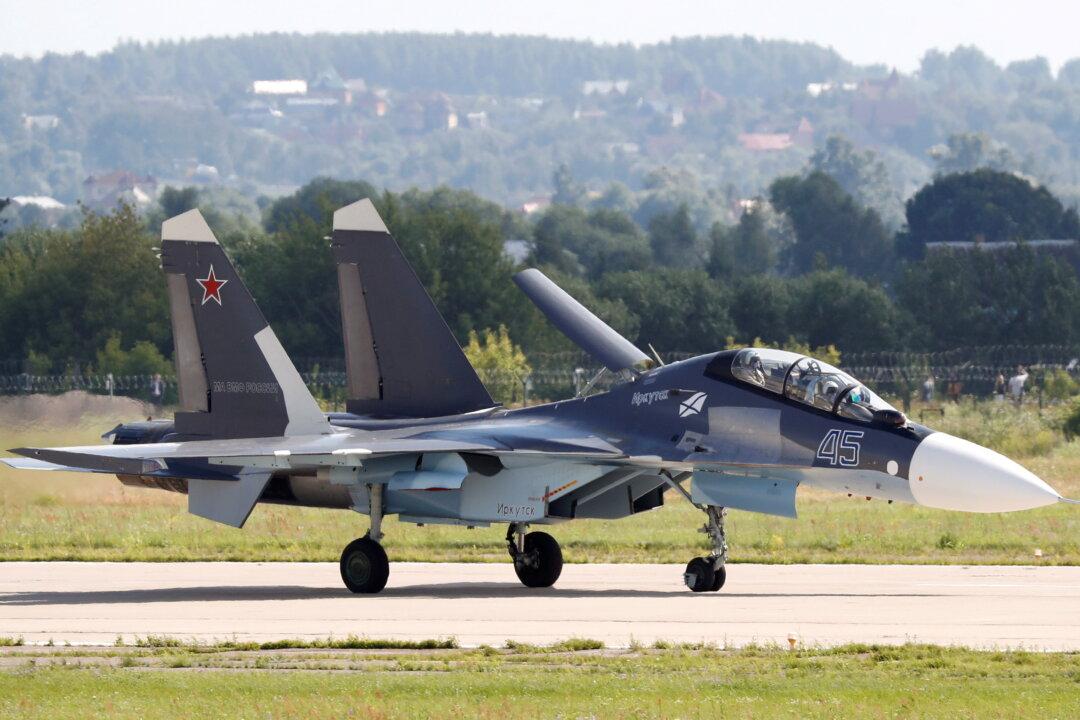MOSCOW—Russia has sent Sukhoi Su-30 fighter jets to western Belarus to form a joint military training center, fly joint missions and patrol the two countries’ borders, the Belarusian defense ministry said on Wednesday.
The announcement comes two days before the start of military drills in Belarus and Russia that have prompted consternation in the NATO military alliance and European Union countries.





